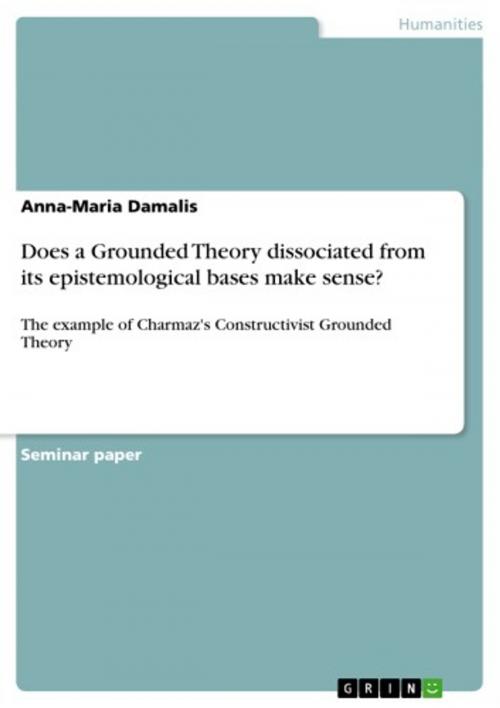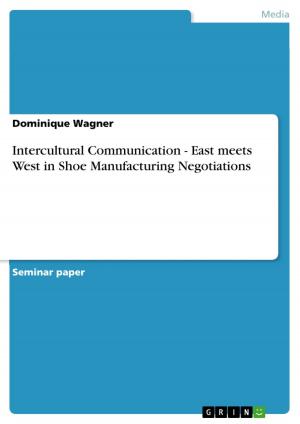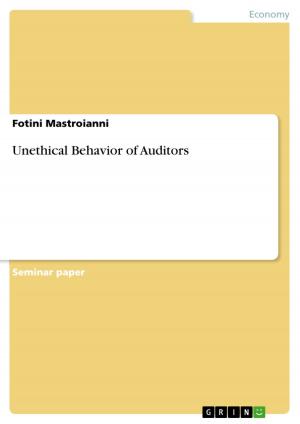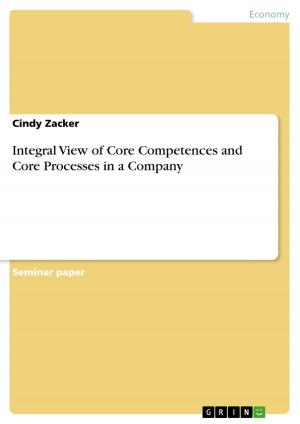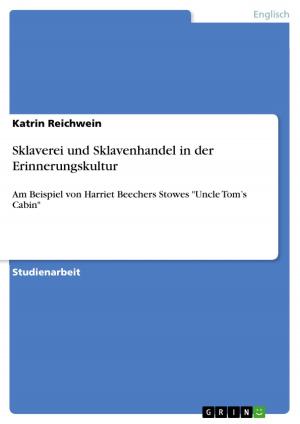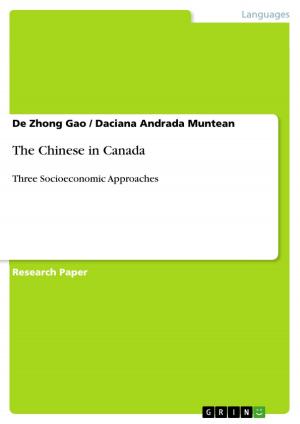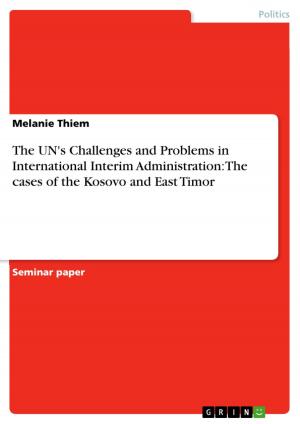Does a Grounded Theory dissociated from its epistemological bases make sense?
The example of Charmaz's Constructivist Grounded Theory
Nonfiction, Social & Cultural Studies, Social Science, Methodology| Author: | Anna-Maria Damalis | ISBN: | 9783656167174 |
| Publisher: | GRIN Publishing | Publication: | April 10, 2012 |
| Imprint: | GRIN Publishing | Language: | English |
| Author: | Anna-Maria Damalis |
| ISBN: | 9783656167174 |
| Publisher: | GRIN Publishing |
| Publication: | April 10, 2012 |
| Imprint: | GRIN Publishing |
| Language: | English |
Seminar paper from the year 2007 in the subject Sociology - Methodology and Methods, grade: 1,3, University of Tubingen, language: English, abstract: I.Introduction Since the first publication of Grounded Theory (in the following GT) by Anselm L. Strauss and Barney Glaser in 1967, a lot of scientists and researchers have written about, applied and reformulated this theory-building method. What is lacking in many of these works is GT's acknowledgement as a methodology. Many researchers have applied the procedures proposed by Strauss and Glaser, but they do not seem to be aware of the epistemological implications resulting from the use of the GT method. As Strauss together with his co-author Juliet Corbin stated: 'In this book (Basics of Qualitative Research, BD/CL), we are offering more than a set of procedures. We are offering a way of thinking about and of viewing the world that can enrich the research of those who choose to use this methodology.' (Strauss/ Corbin 1998: 4) Kathy Charmaz appears to be an exception in this canon, since she is not only thinking about the philosophy of knowledge behind GT, but also attempting to renew the epistemological groundings of GT in the field of constructivism. This leads us to the main question of this thesis: Is this possible? Can the GT method be abstracted from the epistemology standing behind it and be founded on a new one? An affirmative answer would mean that GT from the beginning was simply a method and could be used by all researchers, no matter which tradition they belong to or which theoretical approach they pursue. Or as Charmaz put it: '...researchers starting from other vantage points - feminist, Marxist, phenomenologist - can use grounded theory strategies for their empirical studies.' (Charmaz 2000: 511) The negation of the question would imply that Charmaz's constructivist approach cannot claim the term Grounded Theory for itself. The following paper will examine this question in greater detail in order to find a tentative answer. Starting with a short description of the development, procedures and epistemological foundations of GT , the second part will focus on Charmaz's arguments brought forward against the variant of Strauss and her constructivist version of GT. At the end of this section, her propsals will be evaluated in terms of innovation. In a third section her arguments against Strauss & Corbin will be examined regarding their warrant and validity. Finally, the conclusion will draw together all arguments to solve the question about the exchangeability of the epistemological fundament of GT.
Seminar paper from the year 2007 in the subject Sociology - Methodology and Methods, grade: 1,3, University of Tubingen, language: English, abstract: I.Introduction Since the first publication of Grounded Theory (in the following GT) by Anselm L. Strauss and Barney Glaser in 1967, a lot of scientists and researchers have written about, applied and reformulated this theory-building method. What is lacking in many of these works is GT's acknowledgement as a methodology. Many researchers have applied the procedures proposed by Strauss and Glaser, but they do not seem to be aware of the epistemological implications resulting from the use of the GT method. As Strauss together with his co-author Juliet Corbin stated: 'In this book (Basics of Qualitative Research, BD/CL), we are offering more than a set of procedures. We are offering a way of thinking about and of viewing the world that can enrich the research of those who choose to use this methodology.' (Strauss/ Corbin 1998: 4) Kathy Charmaz appears to be an exception in this canon, since she is not only thinking about the philosophy of knowledge behind GT, but also attempting to renew the epistemological groundings of GT in the field of constructivism. This leads us to the main question of this thesis: Is this possible? Can the GT method be abstracted from the epistemology standing behind it and be founded on a new one? An affirmative answer would mean that GT from the beginning was simply a method and could be used by all researchers, no matter which tradition they belong to or which theoretical approach they pursue. Or as Charmaz put it: '...researchers starting from other vantage points - feminist, Marxist, phenomenologist - can use grounded theory strategies for their empirical studies.' (Charmaz 2000: 511) The negation of the question would imply that Charmaz's constructivist approach cannot claim the term Grounded Theory for itself. The following paper will examine this question in greater detail in order to find a tentative answer. Starting with a short description of the development, procedures and epistemological foundations of GT , the second part will focus on Charmaz's arguments brought forward against the variant of Strauss and her constructivist version of GT. At the end of this section, her propsals will be evaluated in terms of innovation. In a third section her arguments against Strauss & Corbin will be examined regarding their warrant and validity. Finally, the conclusion will draw together all arguments to solve the question about the exchangeability of the epistemological fundament of GT.
